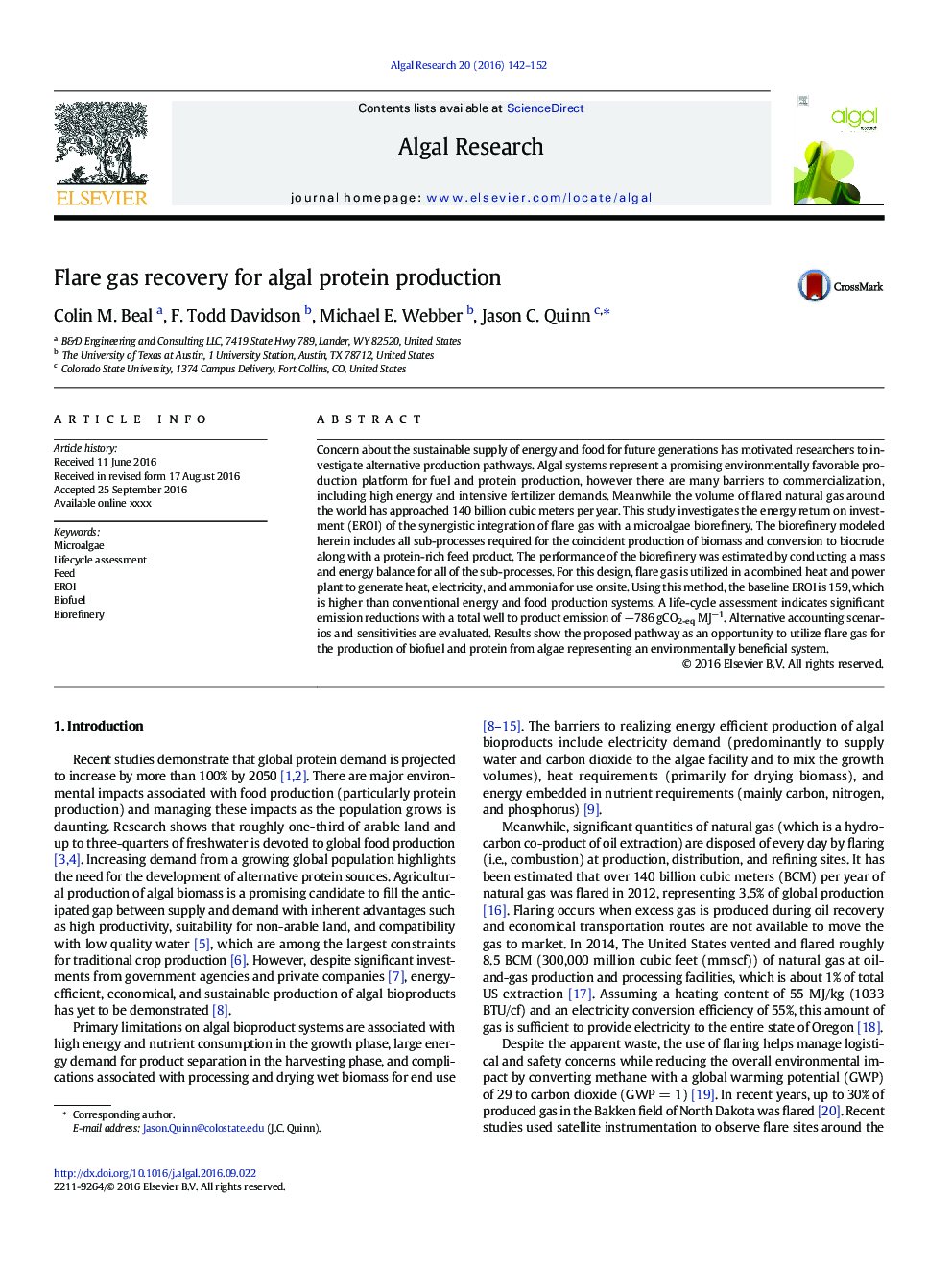| Article ID | Journal | Published Year | Pages | File Type |
|---|---|---|---|---|
| 5478602 | Algal Research | 2016 | 11 Pages |
Abstract
Concern about the sustainable supply of energy and food for future generations has motivated researchers to investigate alternative production pathways. Algal systems represent a promising environmentally favorable production platform for fuel and protein production, however there are many barriers to commercialization, including high energy and intensive fertilizer demands. Meanwhile the volume of flared natural gas around the world has approached 140 billion cubic meters per year. This study investigates the energy return on investment (EROI) of the synergistic integration of flare gas with a microalgae biorefinery. The biorefinery modeled herein includes all sub-processes required for the coincident production of biomass and conversion to biocrude along with a protein-rich feed product. The performance of the biorefinery was estimated by conducting a mass and energy balance for all of the sub-processes. For this design, flare gas is utilized in a combined heat and power plant to generate heat, electricity, and ammonia for use onsite. Using this method, the baseline EROI is 159, which is higher than conventional energy and food production systems. A life-cycle assessment indicates significant emission reductions with a total well to product emission of â786 gCO2-eq MJâ1. Alternative accounting scenarios and sensitivities are evaluated. Results show the proposed pathway as an opportunity to utilize flare gas for the production of biofuel and protein from algae representing an environmentally beneficial system.
Related Topics
Physical Sciences and Engineering
Energy
Renewable Energy, Sustainability and the Environment
Authors
Colin M. Beal, F. Todd Davidson, Michael E. Webber, Jason C. Quinn,
